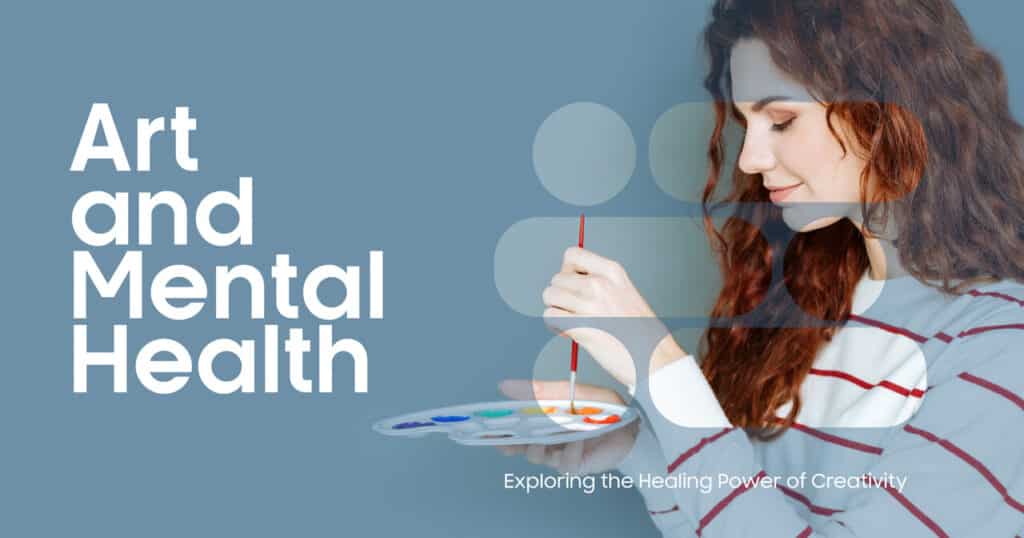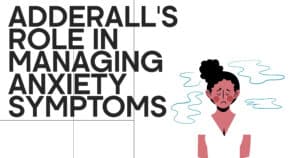Creativity is vital for any person – even if your career is not related to any art form, there are so many ways to express yourself. Engaging in art on your own or under the guidance of a mental health professional will lessen the symptoms of anxiety and depression – not to mention the improvement of cognitive function. Therapy with art, mental health care, and other ways to share your voice, even if the audience is small, are of great importance – you can become a more well-rounded, emotionally healthy, and resilient individual.
In our guide we will explore how art therapy and mental health correlate, figure out if art therapy has had tangible results, and learn more about the therapy that features art and mental health benefits it produces.
The Link Between Art and Mental Health
There is a documented connection between art and mental health based on the presence of art in a person’s life. Whether you get the required supplies and paint a picture or create a DIY project, take dancing classes and learn how to master a musical instrument, or participate in a small theater production to make a play come to life, there are endless benefits of being creative.
Unfortunately, many individuals give up on pursuing any creative outlet when they get older – either they no longer have time to express themselves through painting, playing instruments, or dancing, or they erroneously suppose any form of amateur art is for the kids who have no other ways to showcase their talents. This could not be less true – no matter how old you are, you can always find new sources of inspiration and create a work of art you and others can truly enjoy.
The Stats About Art’s Effects on Mental Health
How does art help mental health? While many therapists offer their clients to try to express themselves through art, it is important to focus on the outcome of art therapy in particular. Studies have proven that more than 80 percent of patients noticed a significant mood improvement after a few sessions with a mental health professional trained in art therapy, more than 70 percent of individuals became less anxious and more self-confident, and more than 75 percent of veterans were able to make steps towards recovery from trauma after engaging in therapeutic sessions.
Note that statistics often do not account for people who enjoy art while being at leisure – if you go to museums, play musical instruments, or compose short stories where you pour out your emotions, your inner world becomes richer even without a counselor’s supervision.
Types of Art Therapy for Mental Health Benefits
Drawing, coloring, and creating collages are not the only ways you can express yourself with the help of art – here are the most popular types of art for mental health:
- Artistic Activities
Scrapbooking a poster to reflect on the previous year or a memorable event, drawing a sketch to create art about mental health issues you personally go through, or coloring images that are supposed to let you enjoy your comfort zone – all these and more can improve your mood both short- and long-term.
Remember that even photography is considered art, so when you take pictures of nature or come up with a photoshoot that includes people you love, focus on the esthetic part of what you are doing.
- Music Therapy
There is a misconception that only professional musicians and composers can benefit from this form of therapy which is not true – even listening to music in a therapeutic setting under the guidance of a qualified therapist can be valuable. Moreover, singing in your spare time or slightly changing the lyrics to a familiar song can be a great outlet to express your emotions.
- Dance/Movement Therapy
It may seem the use of movement focuses primarily on the physical health of the individual yet it is not true – even the most inexperienced dancers can benefit from this therapy.
Whether you are dancing with a partner in an improvisation dance or coming up with a dance routine that enables you to process your trauma, you can let go of stress and leave your hardships behind.
- Drama Therapy
During group counseling sessions with a therapist and a few peers that deal with the same or similar mental health challenges, you can engage in storytelling, roleplaying, and improvisation exercises.
For instance, you and other people undergoing treatment can write a short scene that describes the aftermath of traumatic events each of you has to cope with today – explore and release your emotions.
5 Benefits of Being Creative
How can art help mental health? From a self-discovery tool to a relaxation technique, there are many ways art can improve your mental health:
| Benefit | Description |
Outlet for Self-Expression | It is well-known that children are encouraged to participate in various artistic activities for better development – why should it stop when you are an adult? Whether you want to showcase your creativity through dance or music or you believe you can write a story that will bare your soul, go for it without hesitation or shame |
Stress Relief | Mood swings and anxiety symptoms can be managed if you channel your energy into a form of art you genuinely enjoy – even if it is something simple and you are not very good at it at first, give a chance to art to elevate your mood |
Feeling of Pride and Confidence | When you accomplish a goal, you inevitably feel self-assured and strong. People who devote endless hours to the art they love can be sure they have achieved something important in their lives |
Making Art for Others | DIY gifts you made from scratch are often the best. Whether you are planning a present for someone who already has it all or you want to create something specific for that particular individual with a personal touch, your efforts will be appreciated |
Efficient Problem-Solving | Creativity does not start and end with a brush, pen, or musical instrument – you will learn how to think outside the box and come up with unique solutions whenever there is a situation that requires a more subtle approach |
Art & Mental Health | FAQs
- Why is art good for mental health?
Being more artistic – whatever this means for you personally since people can appreciate art passively or become creators themselves – will reduce the stress that bothers you on a daily basis, boost your self-esteem, develop the skills you may apply in other life situations, and lessen the symptoms of a mental health issue especially if a therapist tells you to practice mindfulness via engaging with art.
- How often do I need to do art to see its benefits on my mental health?
There are no clear guidelines for people who ask themselves “How does art affect mental health?” – it is up to you and your counselor to figure out what type of art therapy can lead to noticeable improvements quickly.
However, we can recommend you to devote at least a few minutes every day to meaningfully engage with art – look at famous artworks by great painters and analyze your emotions, pick up a guitar and play a few chords, or practice some needlework before going to bed instead of staring at a phone screen.
- Will any kind of art help my mental health?
Some individuals cannot connect with certain art forms no matter how hard they try – for example, participating in drama therapy can be the most healing thing for extroverts who want to showcase their acting talents while introverts will find it annoying and stress-inducing.
We can advise you to give a chance to various kinds of art and see what suits you best – do not dismiss the art you have not had the pleasure of experiencing before, and you may be surprised to learn what makes your heart beat faster.
- Should I try art therapy if I am not good at any form of it?
This is a question people ask themselves and immediately come up with a negative answer – if you are not perfect at a certain activity right away, you should drop it and never come back to it. The same feeling occurs when after years of studying painting or doing embroidery you have not moved past the average level.
Do not let these thoughts prevent you from doing art as a hobby – there is no rule that says you have to be the best in the world at writing, dancing, or performing on stage during your treatment.
- What are other creative ways to help my mental health?
Even if you are skeptical about your writing abilities, regular journaling is a great habit to adopt – you can reflect on your personal struggles as well as go back to look how far you have come and feel proud about your achievements in different areas of life.
You can also give gardening a shot – while it is not art in the common sense of the word, cultivating flowers and plants is very beneficial for mental health.




